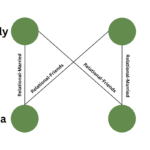Over the past few years, the realms of Site Reliability Engineering (SRE), Platform Engineering, and DevOps Engineering have risen to prominence as indispensable roles in the landscape of contemporary software development. While these roles share commonalities and responsibilities, each plays a unique and pivotal role. This article delves into the intricacies differentiating SRE, Platform Engineers, and DevOps Engineers, shedding light on their distinct responsibilities, objectives, and toolsets.
Site Reliability Engineering (SRE)
Definition: Site Reliability Engineering (SRE) is a discipline dedicated to enhancing the reliability, availability, and performance of software systems.
Key Responsibilities:
- Monitoring system performance and proactively identifying potential issues.
- Designing and implementing systems to bolster performance and availability.
- Conducting incident postmortems to identify improvement areas and prevent future incidents.
- Troubleshooting system issues, including outages and performance bottlenecks.
- Automation of repetitive tasks to enhance reliability and reduce manual workloads.
Tools and Technologies:
- Monitoring and alerting tools.
- Automation tools.
- Configuration management tools.
- Proficiency in system architecture, programming, and scripting languages.
Platform Engineers
Definition: Platform Engineering focuses on the design, implementation, and management of software platforms that facilitate application development.
Key Responsibilities:
- Designing and implementing systems for swift and easy application development and deployment.
- Ensuring the platform is reliable, scalable, and user-friendly.
- Collaborating with developers to understand and meet their platform-related needs.
- Conducting performance testing and optimization for handling high loads and traffic spikes.
- Automation of tasks to streamline processes and enhance reliability.
Tools and Technologies:
- Containerization technologies (e.g., Docker, Kubernetes).
- Configuration management tools.
- Automation tools.
- Proficiency in system architecture, programming, and scripting languages.
DevOps Engineers
Definition: DevOps Engineering bridges the gap between software development and IT operations, aiming to enhance efficiency and reliability.
Key Responsibilities:
- Automation of tasks to improve efficiency and reliability.
- Implementing collaboration and communication best practices between development and operations teams.
- Monitoring system performance and addressing potential issues.
- Conducting performance testing and optimization for scalability.
- Implementing continuous integration and continuous deployment (CI/CD) pipelines to accelerate the software development lifecycle.
Tools and Technologies:
- Automation tools.
- Monitoring and alerting tools.
- CI/CD tools.
- Proficiency in system architecture, programming, and scripting languages.
Main Differences
- Primary Focus:
- SREs: System reliability and availability.
- Platform Engineers: Providing a stable platform for developers.
- DevOps Engineers: Accelerating the software development lifecycle through improved collaboration.
- Specialization:
- SREs: Monitoring and troubleshooting.
- Platform Engineers: Designing and implementing systems.
- DevOps Engineers: Automation and collaboration.
- Tool Preferences:
- SREs: Emphasis on monitoring and alerting tools.
- Platform Engineers: Heavy reliance on containerization technologies.
- DevOps Engineers: Extensive use of automation tools.
Conclusion
In conclusion, while Site Reliability Engineering (SRE), Platform Engineering, and DevOps Engineering share common ground, their unique focuses make them indispensable in distinct ways. Understanding these differences enables organizations to build effective teams capable of meeting the diverse demands of modern software development.



Pingback: Conquer 2024: Your Data Engineer Roadmap to Success - devblogit.com 2024